Refine search
Actions for selected content:
23990 results in Ancient history
Introduction: Foundation Levels
-
- Book:
- Thucydides, Pericles, and the Idea of Athens in the Peloponnesian War
- Published online:
- 27 January 2010
- Print publication:
- 26 October 2009, pp 1-6
-
- Chapter
- Export citation
Works Cited
-
- Book:
- Thucydides, Pericles, and the Idea of Athens in the Peloponnesian War
- Published online:
- 27 January 2010
- Print publication:
- 26 October 2009, pp 279-294
-
- Chapter
- Export citation
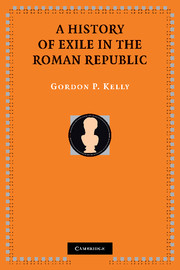
A History of Exile in the Roman Republic
-
- Published online:
- 26 October 2009
- Print publication:
- 24 July 2006
General Index
-
- Book:
- Thucydides, Pericles, and the Idea of Athens in the Peloponnesian War
- Published online:
- 27 January 2010
- Print publication:
- 26 October 2009, pp 295-305
-
- Chapter
- Export citation
2 - The Sea and the City
-
- Book:
- Thucydides, Pericles, and the Idea of Athens in the Peloponnesian War
- Published online:
- 27 January 2010
- Print publication:
- 26 October 2009, pp 82-134
-
- Chapter
- Export citation
Acknowledgments
-
- Book:
- Thucydides, Pericles, and the Idea of Athens in the Peloponnesian War
- Published online:
- 27 January 2010
- Print publication:
- 26 October 2009, pp xi-xii
-
- Chapter
- Export citation
Index Locorum
-
- Book:
- Thucydides, Pericles, and the Idea of Athens in the Peloponnesian War
- Published online:
- 27 January 2010
- Print publication:
- 26 October 2009, pp 306-311
-
- Chapter
- Export citation
3 - The City Sets Sail
-
- Book:
- Thucydides, Pericles, and the Idea of Athens in the Peloponnesian War
- Published online:
- 27 January 2010
- Print publication:
- 26 October 2009, pp 135-187
-
- Chapter
- Export citation
List of Maps
-
- Book:
- Thucydides, Pericles, and the Idea of Athens in the Peloponnesian War
- Published online:
- 27 January 2010
- Print publication:
- 26 October 2009, pp ix-x
-
- Chapter
- Export citation
5 - The City on Samos
-
- Book:
- Thucydides, Pericles, and the Idea of Athens in the Peloponnesian War
- Published online:
- 27 January 2010
- Print publication:
- 26 October 2009, pp 224-278
-
- Chapter
- Export citation
Frontmatter
-
- Book:
- Thucydides, Pericles, and the Idea of Athens in the Peloponnesian War
- Published online:
- 27 January 2010
- Print publication:
- 26 October 2009, pp i-vi
-
- Chapter
- Export citation
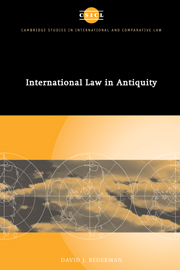
International Law in Antiquity
-
- Published online:
- 23 October 2009
- Print publication:
- 05 March 2001
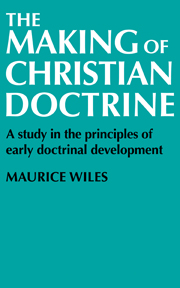
The Making of Christian Doctrine
- A Study in the Principles of Early Doctrinal Development
-
- Published online:
- 16 October 2009
- Print publication:
- 01 July 1967
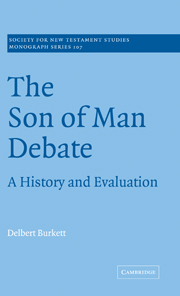
The Son of Man Debate
- A History and Evaluation
-
- Published online:
- 15 October 2009
- Print publication:
- 13 January 2000
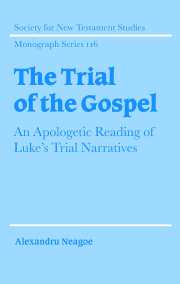
The Trial of the Gospel
- An Apologetic Reading of Luke's Trial Narratives
-
- Published online:
- 14 October 2009
- Print publication:
- 16 May 2002
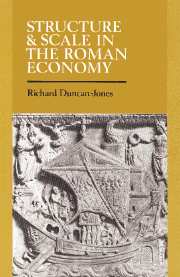
Structure and Scale in the Roman Economy
-
- Published online:
- 13 October 2009
- Print publication:
- 12 April 1990
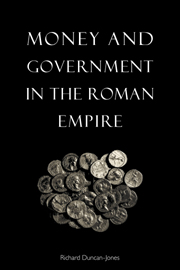
Money and Government in the Roman Empire
-
- Published online:
- 08 October 2009
- Print publication:
- 15 September 1994
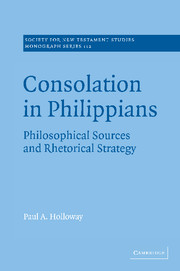
Consolation in Philippians
- Philosophical Sources and Rhetorical Strategy
-
- Published online:
- 06 October 2009
- Print publication:
- 06 September 2001
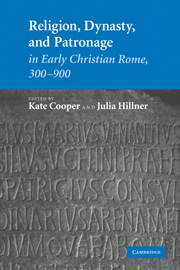
Religion, Dynasty, and Patronage in Early Christian Rome, 300–900
-
- Published online:
- 02 October 2009
- Print publication:
- 13 September 2007
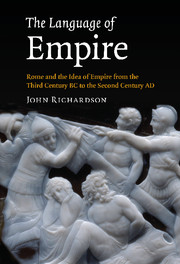
The Language of Empire
- Rome and the Idea of Empire from the Third Century BC to the Second Century AD
-
- Published online:
- 01 October 2009
- Print publication:
- 18 December 2008
